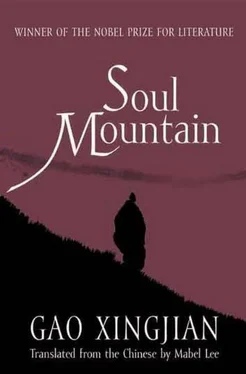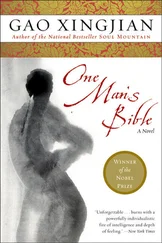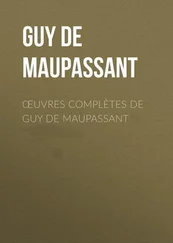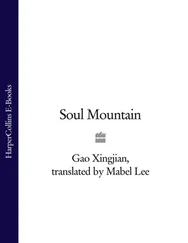Poetic feeling does not derive simply from the expression of the emotions nevertheless unbridled egotism, a form of infantilism, is difficult to avoid in the early stages of writing. Also, there are numerous levels of emotional expression and to reach higher levels requires cold detachment. Poetry is concealed in the distanced gaze. Furthermore, if this gaze also examines the person of the author and overarches both the characters of the book and the author to become the author's third eye, one that is as neutral as possible, the disasters and the refuse of the human world will all be worthy of scrutiny. Then as feelings of pain, hatred and abhorrence are aroused so too are feelings of concern and love for life.
An aesthetic based on human emotions does not become outdated even with the perennial changing of fashions in literature and in art. However literary evaluations that fluctuate like fashions are premised on what is the latest: that is, whatever is new is good. This is a mechanism in general market movements and the book market is not exempted, but if the writer's aesthetic judgement follows market movements it will mean the suicide of literature. Especially in the so-called consumerist society of the present, I think one must resort to cold literature.
Ten years ago, after concluding Soul Mountain which I had written over seven years, I wrote a short essay proposing this type of literature:
“Literature is not concerned with politics but is purely a matter of the individual. It is the gratification of the intellect together with an observation, a review of what has been experienced, reminiscences and feelings or the portrayal of a state of mind.”
“The so-called writer is nothing more than someone speaking or writing and whether he is listened to or read is for others to choose. The writer is not a hero acting on orders from the people nor is he worthy of worship as an idol, and certainly he is not a criminal or enemy of the people. He is at times victimised along with his writings simply because of other's needs. When the authorities need to manufacture a few enemies to divert people's attention, writers become sacrifices and worse still writers who have been duped actually think it is a great honour to be sacrificed.”
“In fact the relationship of the author and the reader is always one of spiritual communication and there is no need to meet or to socially interact, it is a communication simply through the work. Literature remains an indispensable form of human activity in which both the reader and the writer are engaged of their own volition. Hence, literature has no duty to the masses.”
“This sort of literature that has recovered its innate character can be called cold literature. It exists simply because humankind seeks a purely spiritual activity beyond the gratification of material desires. This sort of literature of course did not come into being today. However, whereas in the past it mainly had to fight oppressive political forces and social customs, today it has to do battle with the subversive commercial values of consumerist society. For it to exist depends on a willingness to endure the loneliness.”
“If a writer devotes himself to this sort of writing he will find it difficult to make a living. Hence the writing of this sort of literature must be considered a luxury, a form of pure spiritual gratification. If this sort of literature has the good fortune of being published and circulated it is due to the efforts of the writer and his friends, Cao Xueqin and Kafka are such examples. During their lifetimes, their works were unpublished so they were not able to create literary movements or to become celebrities. These writers lived at the margins and seams of society, devoting themselves to this sort of spiritual activity for which at the time they did not hope for any recompense. They did not seek social approval but simply derived pleasure from writing.”
“Cold literature is literature that will flee in order to survive, it is literature that refuses to be strangled by society in its quest for spiritual salvation. If a race cannot accommodate this sort of non-utilitarian literature it is not merely a misfortune for the writer but a tragedy for the race.”
It is my good fortune to be receiving, during my lifetime, this great honour from the Swedish Academy, and in this I have been helped by many friends from all over the world. For years without thought of reward and not shirking difficulties they have translated, published, performed and evaluated my writings. However I will not thank them one by one for it is a very long list of names.
I should also thank France for accepting me. In France where literature and art are revered I have won the conditions to write with freedom and I also have readers and audiences. Fortunately I am not lonely although writing, to which I have committed myself, is a solitary affair.
What I would also like to say here is that life is not a celebration and that the rest of the world is not peaceful as in Sweden where for one hundred and eighty years there has been no war. This new century will not be immune to catastrophes simply because there were so many in the past century, because memories are not transmitted like genes. Humans have minds but are not intelligent enough to learn from the past and when malevolence flares up in the human mind it can endanger human survival itself.
The human species does not necessarily move in stages from progress to progress, and here I make reference to the history of human civilisation. History and civilisation do not advance in tandem. From the stagnation of Medieval Europe to the decline and chaos in recent times on the mainland of Asia and to the catastrophes of two world wars in the twentieth century, the methods of killing people became increasingly sophisticated. Scientific and technological progress certainly does not imply that humankind as a result becomes more civilised.
Using some scientific — ism to explain history or interpreting it with a historical perspective based on pseudo-dialectics have failed to clarify human behaviour. Now that the utopian fervour and continuing revolution of the past century have crumbled to dust, there is unavoidably a feeling of bitterness amongst those who have survived.
The denial of a denial does not necessarily result in an affirmation. Revolution did not merely bring in new things because the new utopian world was premised on the destruction of the old. This theory of social revolution was similarly applied to literature and turned what had once been a realm of creativity into a battlefield in which earlier people were overthrown and cultural traditions were trampled upon. Everything had to start from zero, modernisation was good, and the history of literature too was interpreted as a continuing upheaval.
The writer cannot fill the role of the Creator so there is no need for him to inflate his ego by thinking that he is God. This will not only bring about psychological dysfunction and turn him into a madman but will also transform the world into a hallucination in which everything external to his own body is purgatory and naturally he cannot go on living. Others are clearly hell: presumably it is like this when the self loses control. Needless to say he will turn himself into a sacrifice for the future and also demand that others follow suit in sacrificing themselves.
There is no need to rush to complete the history of the twentieth century. If the world again sinks into the ruins of some ideological framework this history will have been written in vain and later people will revise it for themselves.
The writer is also not a prophet. What is important is to live in the present, to stop being hoodwinked, to cast off delusions, to look clearly at this moment of time and at the same time to scrutinise the self. This self too is total chaos and while questioning the world and others one may as well look back at one's self. Disaster and oppression do usually come from another but man's cowardice and anxiety can often intensify the suffering and furthermore create misfortune for others.
Читать дальше
Конец ознакомительного отрывка
Купить книгу












